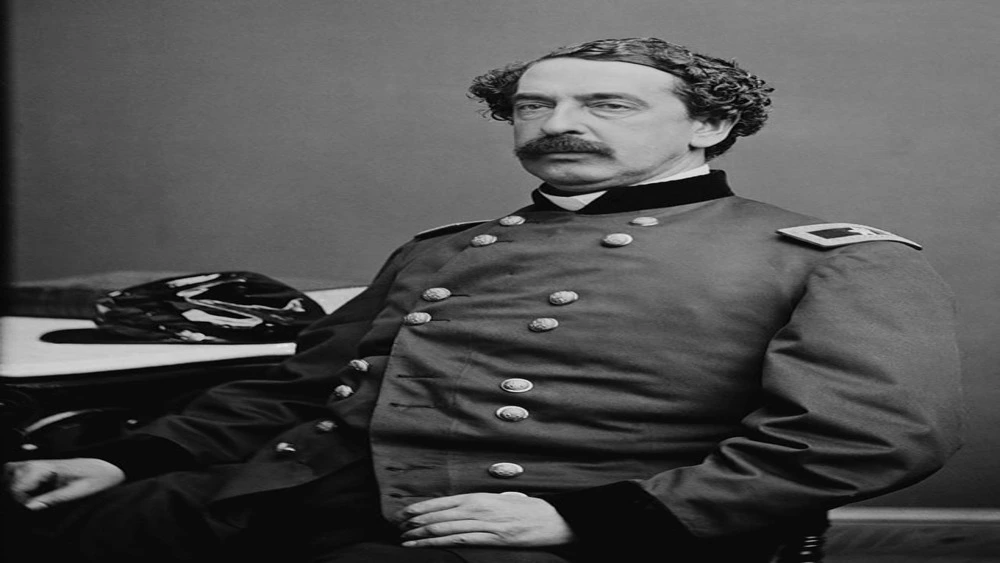Abner Doubleday is a name that resonates with many, though for different reasons. Some know him as a steadfast Union general who played a significant role in the Civil War. Others associate him with the origins of baseball, a myth that has persisted despite a lack of historical evidence. His life was a tapestry of military service, leadership, and the complexities of historical memory. Doubleday remains a compelling figure, whether on the battlefield or in American folklore. His contributions deserve to be explored beyond the myths that have surrounded him.
Early Life and Military Career
Born on June 26, 1819, in Ballston Spa, New York, Abner Doubleday was raised in a family that valued education and service. His father, Ulysses Doubleday, had served as a congressman, instilling in young Abner a sense of duty and patriotism. With a keen interest in mathematics and engineering, Doubleday attended the United States Military Academy at West Point, graduating in 1842. Among his classmates were future Civil War luminaries such as James Longstreet and Daniel Harvey Hill.
Doubleday began his military career in the Mexican-American War but saw limited action. He then served in various assignments, including in Florida during the Seminole Wars and on the Texas frontier. His experience in these early conflicts honed his skills as a leader and tactician, preparing him for the tumultuous years ahead.
Firing the First Shot at Fort Sumter
As tensions between the North and South escalated in the early 1860s, Doubleday found himself stationed at Fort Sumter, South Carolina. On April 12, 1861, Confederate forces began bombarding the fort, marking the start of the Civil War. Doubleday, then a captain, is credited with firing the first Union shot in defense of the fort. Though Fort Sumter eventually fell to the Confederates, this moment symbolized the Union’s resistance and the beginning of a long and bloody conflict.
The Battle of Gettysburg and Doubleday’s Leadership
While Doubleday participated in numerous battles during the Civil War, his most significant contribution came during the Battle of Gettysburg in July 1863. On the battle’s first day, when Union General John Reynolds was killed, command of the I Corps fell to Doubleday. Despite being outnumbered, he organized a valiant defense against the advancing Confederates, holding the line long enough for reinforcements to arrive. His leadership helped stabilize the Union position, setting the stage for their ultimate victory.
However, his role in the battle became a source of controversy. General George Meade, the Union commander at Gettysburg, replaced Doubleday with General John Newton. The decision was reportedly due to doubts about Doubleday’s ability to command. This decision deeply affected Doubleday, who felt slighted despite his effective leadership. It was one of the many moments in his career where recognition eluded him.
The Baseball Myth: A Legend That Won’t Die
One of the most persistent myths about Abner Doubleday is that he invented baseball. The story emerged in 1907 when a commission led by Albert Spalding, a sporting goods magnate, sought to determine baseball’s origins. A claim surfaced that Doubleday had created the game in Cooperstown, New York, in 1839. Despite a lack of evidence—Doubleday never mentioned baseball in his extensive writings—the story gained traction, leading to the establishment of the National Baseball Hall of Fame in Cooperstown.
Historians have since debunked the claim, tracing baseball’s evolution to earlier bat-and-ball games played in England and America. While Doubleday’s connection to baseball is fictional, it remains a deeply ingrained part of American cultural history.
Post-War Years and Legacy
After the war, Doubleday continued his military service in Texas before being stationed in San Francisco. There, he contributed to the development of the city’s cable car system. He retired in 1873 and spent his final years writing about military history and advocating for veterans’ rights.
Doubleday passed away on January 26, 1893, in Mendham, New Jersey. Though he never received the full recognition he deserved during his lifetime, his contributions to American history remain significant. From his actions at Fort Sumter to his leadership at Gettysburg, he was a dedicated officer who served his country with honor.
Final Thoughts: The Man Beyond the Myth
Service, perseverance, and overlooked achievements defined Abner Doubleday’s life. While the myth of him inventing baseball overshadows his true legacy, his military career and contributions to the Union cause during the Civil War remain undeniable. His story reminds us that narratives, not just facts, often shape history. Whether as a soldier, a strategist, or a name forever linked to baseball folklore, Doubleday secures his place in American history, even if people sometimes misunderstand it.










